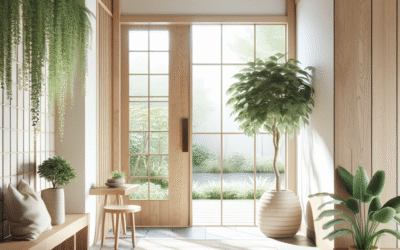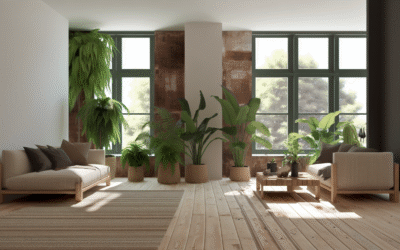
Maximize Your Walls: Creating a Stunning Art Salon in Any Space
What is a Salon-Style Art Display Anyway?
Ever walked into a room and felt instantly enveloped by art? Not just one piece, but a whole collection that tells a story? That, my friend, is probably a salon-style art display, sometimes called a gallery wall. It’s all about curating a collection of artwork – paintings, prints, photographs, you name it – and arranging them closely together on a wall, creating a visually rich and dynamic statement.
Why Should I Even Bother?
You might be thinking, “Why go to all that effort? Can’t I just hang one big picture?” Sure you can, but a salon-style display offers something more – a personal narrative. It’s a chance to showcase your personality, your tastes, and your memories all in one breathtaking arrangement. Plus, it’s a fantastic way to fill up a large wall! I mean, who doesn’t love a statement piece that actually *means* something?
Planning Your Masterpiece: Where to Start
Alright, ready to roll up your sleeves? Good. But before you start hammering nails into the wall, let’s do a little planning, shall we?
1. Assessing Your Space
First things first, take a long, hard look at the wall you’re planning to conquer. Is it a massive blank canvas in your living room? Or a cozy nook in your hallway? The size and shape of the space will dictate the scale and layout of your display. Consider the available light, too. Is it flooded with natural light, or is it a bit dim? This will influence the types of artwork you choose and how you arrange them.
Here’s something you might not have thought about right away: What’s the existing decor in the room? You don’t want your art display to clash with your furniture or color scheme. Instead, aim for harmony – either by complementing the existing style or by creating a deliberate contrast for that “wow” factor.
2. Curating Your Collection
Okay, so you know your wall. Now it’s time for the fun part: gathering your artwork! This is where your personal taste really shines. Don’t be afraid to mix and match different styles, sizes, and mediums. A vintage oil painting next to a modern abstract print? Why not! The key is to create a cohesive collection that speaks to you.
Don’t have a ton of art already? No problem! Flea markets, antique shops, and online marketplaces like Etsy are treasure troves of affordable and unique pieces. And don’t forget about framing! A well-chosen frame can elevate even the most humble piece of art.
3. Choosing a Layout: From Grid to Freeform
Now for the layout. This is where things can get a little tricky, but don’t worry, I’m here to guide you. There are basically two main approaches:
- The Grid: Think neat, orderly, and symmetrical. This layout works well for more formal spaces and creates a sense of calm and balance. It’s also the easiest to execute – just measure carefully and hang your art in straight lines.
- The Freeform: This is where you can really let your creativity flow. The freeform layout is more organic and spontaneous, with artwork arranged in a seemingly random, yet carefully considered, manner. It’s perfect for adding a touch of bohemian chic to any room.
If you’re feeling indecisive, try sketching out your layout on paper before you start hanging anything. Or, even better, use painter’s tape to mock up the arrangement on your wall. This will give you a visual representation of how the finished display will look.
Oh, and a quick tip: consider the focal point. That’s the piece that will draw the eye first. Make sure it’s something special – maybe the largest piece in your collection, or the one with the most vibrant colors.
Hanging Like a Pro: Techniques and Tips
Alright, the moment of truth! You’ve planned, you’ve curated, now it’s time to hang. But before you grab that hammer, let’s go over a few essential techniques and tips.
1. Tools of the Trade
First, gather your supplies. You’ll need:
- A hammer
- Nails
- A level
- A measuring tape
- Painter’s tape
- Pencils
- Picture hanging hardware (hooks, wire, etc.)
2. The Right Height
Now, let’s talk about height. The general rule of thumb is to hang your artwork so that the center of the piece is at eye level, which is usually around 57 to 60 inches from the floor. But hey, rules are meant to be broken, right? If you have particularly tall ceilings, you might want to hang your display a bit higher. And if you’re hanging it above a piece of furniture, like a sofa, allow at least 6 to 8 inches of space between the bottom of the artwork and the top of the furniture.
You know what? Visual balance is key. Step back and asses your work. Does that painting feel too high? Too low? Trust your instinct. Minor adjustments can make all the difference!
3. Spacing is Everything
Spacing is another crucial element to consider. You want your artwork to be close enough to create a cohesive gallery wall, but not so close that it feels cluttered. A good starting point is to leave about 2 to 4 inches between each piece. But again, feel free to experiment and find what works best for your particular collection and space.
Here’s something that often gets overlooked: Consider the “visual weight” of each piece. A large, dark-colored painting will appear heavier than a small, light-colored print. Adjust the spacing accordingly to create a balanced display.
4. Mastering the Hanging Hardware
Choosing the right hanging hardware is essential for ensuring that your artwork stays securely on the wall. For lighter pieces, simple picture hooks and nails may suffice. But for heavier pieces, you’ll need to use sturdier hardware, such as D-rings and wire or heavy-duty hooks. Always check the weight rating of the hardware to make sure it can support the weight of your artwork.
Here’s the thing: Drywall anchors can be life savers! If you’re hanging something heavy on drywall, using anchors will prevent the nails from pulling out and damaging your wall.
5. Levelling Up Your Game
And last but not least, always use a level! There’s nothing worse than a gallery wall with crooked artwork. After you’ve hung each piece, double-check that it’s level before moving on to the next one. Trust me; your eyes will thank you later.
Think about this: You can download a level app to your phone. Pretty neat, huh?
Styling Tips for a Show-Stopping Display
So, you’ve got all your art up on the wall. Awesome! But before you pat yourself on the back, let’s take a moment to add those finishing touches that will really make your display shine.
1. Color Coordination
Consider the colors in your artwork and how they relate to each other and to the overall color scheme of your room. You don’t have to match everything perfectly, but aim for a sense of harmony and balance. You can tie different pieces together by using frames in the same color or finish or by incorporating a few pops of a complementary color.
2. Texture and Dimension
Don’t be afraid to add texture and dimension to your display. Incorporate artwork with different surfaces and textures, such as a heavily textured oil painting, a smooth glass-framed photograph, and a woven tapestry. You can also add dimension by layering artwork on top of each other or by incorporating decorative objects, such as small sculptures or vases.
3. Telling a Story
Remember, your salon-style display is a reflection of your personal taste and style. Use it as an opportunity to tell a story. Arrange your artwork in a way that creates a visual narrative, whether it’s a collection of travel photos that evoke a specific trip or a series of portraits that celebrate the people you love.
4. Lighting is Key
And don’t forget about lighting! Proper lighting can make a huge difference in how your artwork is perceived. Consider adding spotlights to highlight specific pieces or using track lighting to illuminate the entire display. You can also use dimmer switches to adjust the lighting according to the time of day and your mood.
Maintaining Your Gallery Wall
Creating a salon-style art display is an investment of time and effort, so you’ll want to take steps to maintain it and keep it looking its best. Dust your artwork regularly with a soft cloth to remove any accumulated dirt or grime. Avoid using harsh chemicals or abrasive cleaners, as these can damage the surface of your artwork. And if you notice any signs of wear and tear, such as fading or cracking, consider consulting with a professional art conservator.
Parting Thoughts: Own It!
Creating a salon-style art display is all about expressing your unique personality and style. Don’t be afraid to experiment, break the rules, and have fun with it. After all, it’s your wall, your art, and your story. And honestly, nobody can tell it quite like you can.
Now, go forth and create something amazing!
FAQ Section
document.querySelectorAll(‘.faq-question’).forEach(question => {
question.addEventListener(‘click’, () => {
question.classList.toggle(‘active’);
});
});
DISCLAIMER
Please note that this article provides general guidance on creating a salon-style art display. Individual results may vary based on personal preferences, wall conditions, and available materials. Always prioritize safety when working with tools and ensure that your hanging hardware is appropriate for the weight of your artwork. If you are unsure about any aspect of the process, consider seeking advice from a professional.
Categories
- Accent Walls & Ceilings (84)
- Art Curation & Gallery (83)
- Bedding Style Trends (89)
- Bedroom Makeover (96)
- Bohemian & Eclectic Styles (80)
- DIY & Budget-Friendly Decor (78)
- Eco-Friendly Design (83)
- Furniture Care (87)
- Home Decor & Design Ideas (181)
- Home Wellness Spaces (103)
- Integrated Outdoor Living (91)
- Japandi Style (84)
- Kids and Nursery Decor (73)
- Living Room Decor (99)
- Mix & Match Techniques (95)
- Modern & Contemporary Design (88)
- Rug Sizing & Placement (89)
- Scandinavian Design Inspiration (51)
- Seasonal Home Decor (100)
- Small Space Solutions (93)
- Wall Art & Painting Tips (94)
Recent Comments
Archives
Product Gallery
-
Majestic African Wildlife Canvas Art for Stylish Home Decor
Rated 5.00 out of 5 -
Cozy Irregular Green Plush Rug for Nordic Living Spaces
Rated 5.00 out of 5$45.34 – $285.89Price range: $45.34 through $285.89 -
Scandinavian Geometric Area Rugs for Stylish Home Décor
Rated 5.00 out of 5$33.98 – $514.70Price range: $33.98 through $514.70













